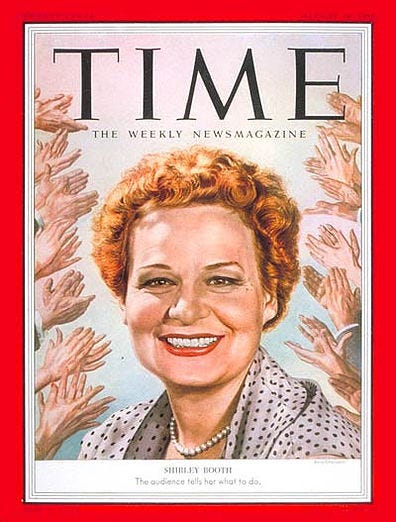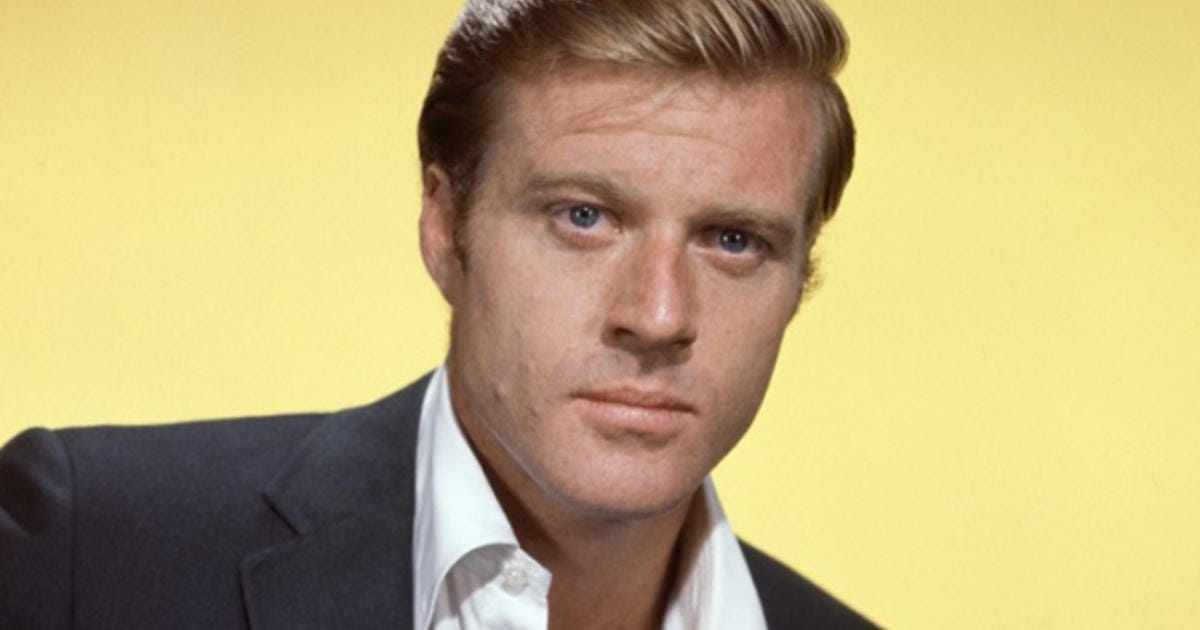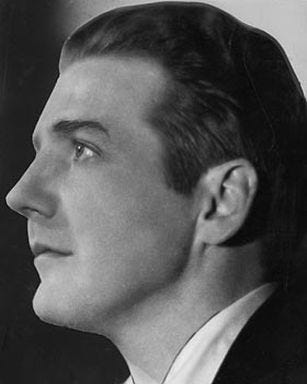“ON THE 20TH CENTURY” — THE MUSICAL
The subject of this column last week was the 1932 play Twentieth Century, on which 1978’s On the 20th Century is based. One of my all-time favorite musicals, its superb original production had to be seen to be believed. I was fortunate forty-four years ago to have done so one-and-a-half times; brazenly second acting it on a hot summer night while wandering about Times Square with nothing to do at 9:15 p.m. I loved how spectacularly over-the-top it seemed in almost every way and yet how it managed to still deliver emotionally. That is probably because it featured artists working at the top of their form, all on the same page (well, nearly all). While watching it forty-four years ago on the stage of the St. James Theatre, I felt I might have been witnessing the final stop on the train (not to stretch a metaphor). Except for David Merrick’s 42nd Street, which came two years later, most American musicals began to pare down around the end of the seventies, all but throwing up their hands once the British Invasion arrived with overstuffed, serious-minded epics like Les Miserables and Phantom of the Opera, sticking around for what felt like eons.
In his opening night review in the New York Times, Richard Eder wrote that On the 20th Century had “brought back what seemed dead or at least endangered: the comedy in musical comedy.” It would receive five Tony Awards for its writing, acting and design, though it lost the ultimate Best Musical trophy to Ain’t Misbehavin’, a five-person revue of old songs, mostly written by jazz great Thomas “Fats” Waller. Truth be told, its small-scale intimacy was a revelation; the polar opposite of what 20th Century had going for it. And between the two, sales for the little engine that could out-chugged the big train (okay, now I’m stretching the metaphor). Ain’t Misbehavin’ started its journey off-off-Broadway, then moved triumphantly to Broadway where it ran for close to four years (20th Century only managed thirteen months). Their Tony matchup was a David vs Goliath situation; one replicated in 2004 when Avenue Q beat Wicked. It’s always a shame when two such different and exciting shows compete against one another for the top prize, but there’s still only been a single tie for Best Musical and that was in 1960 when Fiorello! and The Sound of Music got the same number of votes. And what was the probable third place finisher? Oh, a little show called Gypsy (with the other two nominees Once Upon a Mattress and Take Me Along for good measure). One hell of a great year.
The notion to musicalize the 1932 hit Broadway comedy Twentieth Century came to Cy Coleman, Betty Comden and Adolph Green. The first-time the trio collaborated was in 1975 when they created two songs for a revue directed by Green’s wife, Phyllis Newman, that played off-Broadway without ever opening to critics. Beginning in 1976, they tossed around a number of ideas for shows before settling on Twentieth Century, but then grew increasingly disappointed that the content and style proved difficult to solve musically. In an interview a full year before the show opened, Coleman said, “I knew there was a certain perception that the show should have a 1920s score. I didn’t mind doing a period piece, but it was not a period that I wanted to do. I felt it was too boxlike and confining musically.”
Later, according to Comden and Green, in a piece they wrote for the New York Times, “One day, working with Cy, we improvised a musical sequence that was highly flamboyant verging on the operatic. We laughed, dismissed it as ‘too much,’ and then suddenly realized that that was really the way Oscar and Lily should sound. In fact, it was the way the entire show should sound. We felt we had the key.”
With that behind them, the three pros set about writing a score of scope and complexity. Complete with mock opera containing some not-so-mock high notes; two beautiful love songs (one smack in the middle of an intricate sextet), and solos for its leads designed to be sung with brio and comic abandon, it really was all one could wish for in a musical comedy. Sadly, its ambitiousness was not fully appreciated at the time, and even some of the major critics dismissed the show as a failure in achieving its goals. That’s not the way its company felt; a close-knit group that, according to ensemble member, Maris Clement, “was the best cast I ever worked with; they were lovely people, smart, very talented, funny and loving. It was the best show I was in, and many of us have remained friends and keep in touch.”
Before engaging Harold Prince to direct, the producers hired Madeline Kahn for her first lead in a Broadway musical (whether she’d signed on the dotted line or not is unclear, but she was set). At the time, she was a much-sought after film actress with back-to-back Academy Award nominations for Paper Moon andBlazing Saddles. However, Kahn hadn’t done a musical in a while, even though it was where her roots were planted. Perfect for the role of Lily, if you’ve never heard her on the original cast recording, she’s got it all. Kahn had a unique way with comedy that was entirely her own. She was also a trained opera singer who could sing funny, too!
What turned out sort of funny was the fact that due to Prince not meeting her prior to the first day of rehearsal, it caused a bit of confusion for the director. According to Foster Hirsch’s book Harold Prince and the American Musical Theatre, Prince is quoted as saying “Actually, when I cast her, I thought Madeline Kahn was Bernadette Peters… I had gotten the two of them mixed up.”
Whether that is completely true or not, what is a fact is that the show’s original producers, Ernie Martin and Cy Feuer, quit over the casting of the right actor/singer for Oscar. They demanded a big-name star like Alfred Drake, who might once have been a perfect choice. But at age sixty-four, he was perhaps a bit beyond the physical comedy essential for the role, besides having to sing a tough score eight times a week. Their next choice, Danny Kaye, three years Drake’s senior, might have had the energy to pull it off, but was vetoed immediately by Madeline Kahn. The two had shared the stage nightly together during the ten-month run of Two by Two in 1970, and using a lyric written for Lily by Comden and Green, Kahn told the producers something to the effect of “Go back with him… I’d rather die.”
For a very different picture of Oscar and Lily, Alan Bates and Meryl Streep auditioned for the roles. Bates, already a major star, did so in a less formal setting than Streep (it was the living room of Cy Coleman’s apartment), but the decision with both was that as fascinating as the casting might have been, their deficiencies as singers never allowed them to be serious contenders.
When I interviewed Prince in 2013, I mentioned to him one other potential casting choice that could have easily solved the issue: Jack Cassidy, who had been directed by Prince in both She Loves Me, for which Cassidy won the Tony, and It’s a Bird… It’s a Plane… It’s Superman. Of course, it was all moot since Cassidy had died in a fire in 1976. Yet upon suggesting him for Oscar, Prince jumped up in his seat. “Oh, yes! Unquestionably, because he was Barrymore! He was Barrymore! Oh sure. But John was dazzling!”
“Dazzling!” How right Prince was. Cullum justifiably won the Tony Award for Best Actor in a Musical and the Featured Actor Tony went to Kevin Kline. It was not his Broadway debut, or even his debut in a musical, but it WAS his debut in the sense that he took a small role and turned it into something that made everybody take notice. With his comedy as physical as anything Douglas Fairbanks did in silent films, and his striking handsomeness parodied as self-idolatry, the effects were riotous. And, just like that, a star was born.
Things went relatively smoothly during the Boston tryout as well as the short preview period in New York. Sure, things got cut, shifted, and overhauled, but generally the creative team was encouraged with what they had. However, there was one major thing that was giving them fits of apoplexy: they could not count on their leading lady to deliver full out at any given performance. Madeline Kahn was, frankly, terrified of failing. She feared cracking on certain high notes (and did), was erratic, and essentially a jumble of nerves. She was also most often brilliant. So, there was that.
Even with the challenges Cullum and Kline faced with Kahn, they both adored her. But for Comden, Green, Coleman and Prince, she was exasperating. She was also missing performances.
As Prince told me in that same interview, the situation with Kahn finally came to a head like this:
“I couldn’t get the performance out of her. I could not get it, and she’d been so weaned on Mel Brooks movies, where you cut, you stop, you do… do it a little differently… It’s a kind of genius, it’s brilliant, but it isn’t sustaining. And she was tired of sustaining roles, and she couldn’t do it. So, I just kept urging and urging. Finally, on opening night on Broadway, she did it, which is why we did get such good reviews. I ran backstage, walked into her dressing room and said, ‘Madeline! You did it! You did it all tonight!’ And she looked in the mirror and said, ‘I hope you don’t think I can do that every night.’ And my heart sank, and I thought, ‘We’re doomed.’ Well, it wasn’t doomed because of Judy Kaye, thank God.”
Judy Kaye. As good a reason as any for a part three. Keep your train tickets. The ride isn’t over yet.
If you enjoy these columns, check out Up in the Cheap Seats: A Historical Memoir of Broadway, available at Amazon.comAmazon.com in hardcover, softcover and e-book. Also, follow me here on Medium and feel free to email me with comments or questions at Ron@ronfassler.org.








